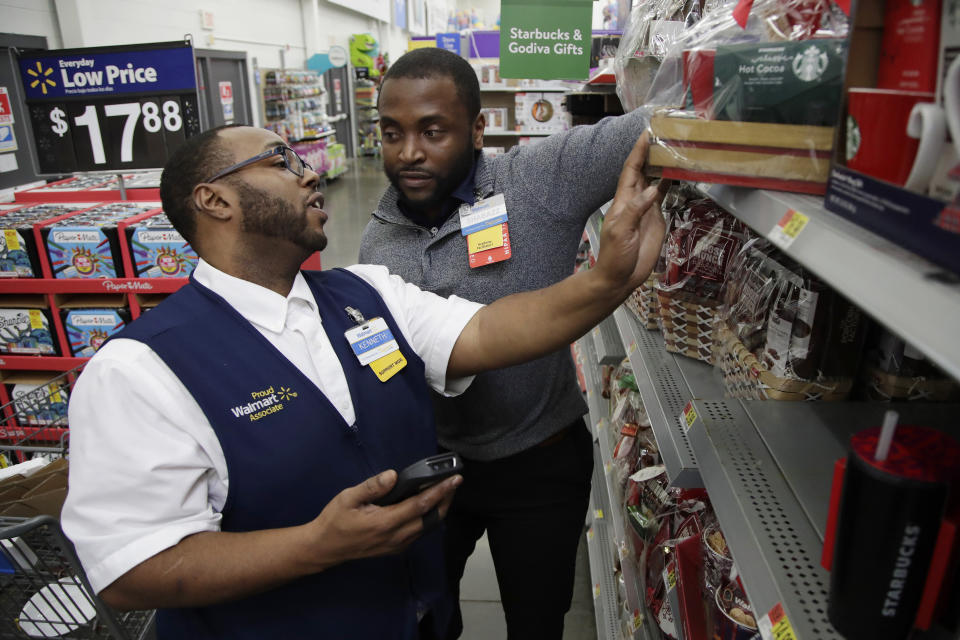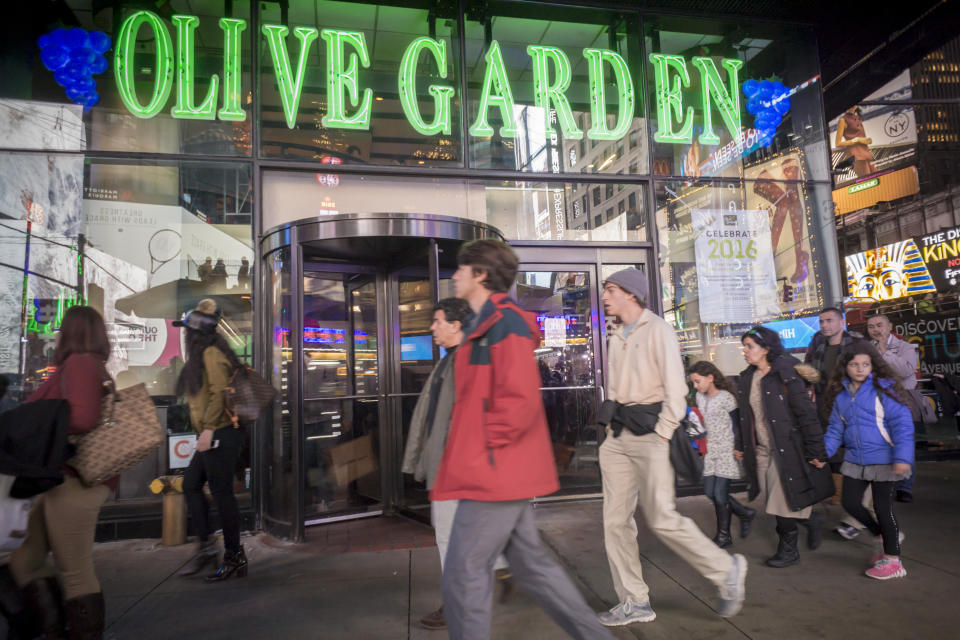Coronavirus outbreak forces U.S. companies to change sick leave policies
As experts warn that limited access to paid sick leave could exacerbate the coronavirus outbreak, U.S. retailers, restaurants, and gig economy companies are changing their policies to head off health problems — and scrutiny.
Walmart is one of the latest companies to offer paid time off to its hourly workers shortly after one of its employees tested positive for coronavirus in Kentucky. The retail giant joins Starbucks, McDonald’s, Darden Restaurants, REI Co-op, Uber, Lyft, and Instacart in efforts to blunt the financial burden for workers to stay home when sick during the outbreak.
Read more: Paying for healthcare: Everything you need to know
“Providing sufficient paid sick time is the kind of common sense first step every business should be taking right now,” said Amy Traub, an associate director of policy and research at Demos, a left-leaning think tank.

“It’s interesting that Olive Garden and REI are making this announcement because workers at these companies have been calling for better working conditions — including improved sick time policies — for a long time,” she said.
Retail and restaurant workers
Walmart
The largest private employer in the U.S. on Tuesday announced emergency paid sick leave for 1.4 million of its hourly workers. Workers under quarantine will get up to two weeks of pay and additional pay may be provided for those not able to return after that period, the company said in a statement.
REI Co-op
The outdoor clothing and supply retailer modified its paid time-off policies to make sure hourly retail employees will be compensated as the retailer steps up efforts to protect employees and consumers as the coronavirus spreads, the company said in a statement.
Starbucks
The coffee shop chain announced on March 11 that employees will be eligible for up to 14 days of ‘catastrophe pay.’ The emergency pay is available to employees who have been diagnosed with COVID-19 or have been in contact with someone who has. A Starbucks employee in Seattle tested positive on March 6.
McDonald’s

The fast food chain joined the movement on Tuesday, but its new policy only applies to workers in the corporate-owned locations, which represents only 5% of all McDonald’s restaurants. Those employees will have up to 14 days of paid sick time if placed under quarantine.
Darden Restaurants
Olive Garden’s parent company which also operates LongHorn Steakhouse, Bahama Breeze and Yard House, will offer its hourly workers who previously didn’t have access to paid sick leave a total of 40 hours or approximately five days a year.
“We have been working on this for quite some time,” said Rich Jeffers, a Darden spokesman, in an email to Yahoo Money. “However, we did accelerate rolling it out to our team members given the current environment.”
The company said that more than 180,000 workers in its eight restaurant brands will benefit.

“Darden’s decision is an important step and sets a powerful precedent for its employees and the restaurant industry at large,” said Sean Kennedy, a spokesman for the National Restaurant Association.
While the changes in sick policies are a step forward, Traub said they may be insufficient to contain the outbreak.
“Something is always better than nothing, but 40 hours a year does not fully rise to the occasion of the public health emergency we’re facing,” Traub said. “If workers are quarantined for the standard 14 days they will still miss pay—and the servers, cooks, and other staff at Olive Garden and other restaurants operated by parent company Darden are among the people least able to afford a missed paycheck.”
Gig economy workers
After an Uber driver in Queens, New York, tested positive for coronavirus on March 6, ride-sharing companies have found themselves under a harsh spotlight.
While not guaranteeing paid sick leave to its drivers, Uber and Lyft on March 8 announced emergency funds to help those who are diagnosed with COVID-19 or are quarantined.
Read more: Coronavirus and travel: What you need to know
“Drivers and delivery people in these situations will receive compensation for a period of up to 14 days,” said Andrew Macdonald, senior vice president of rides and platform at Uber. That includes those who have been asked to self-isolate, he said.
Lyft also will compensate drivers who have tested positive for COVID-19 and those who have been quarantined. Lyft didn’t comment on what the compensation will be or if it has already compensated people who have tested positive or are under quarantine.

Instacart, a company providing same-day grocery deliveries, announced a new sick pay policy, giving employees access to accrued sick pay, and additional 14 days of pay for any employee diagnosed with COVID-19 or placed under quarantine.
In the gig economy, independent contractors are typically responsible for their own sick pay, but this may be a bigger issue amid the outbreak of coronavirus given the contractors’ contact with so many people, according to Harry Campbell, founder of therideshareguy.com.
“You could argue how much responsibility Uber and Lyft have,” Campbell said. “When they're driving while sick, they could potentially be infecting dozens — if not hundreds — of other passengers, so there’s a community health risk, too.”

‘A wake-up call’
Worker advocates hope this is the start of more permanent, employee-friendly policies.
Many workers without paid sick leave work in child care, restaurants, hotels, and travel where they come into contact with many people everyday and could help spread the virus. In these service occupations, more than 2 in 5 of the workers don’t get paid sick days, according to the U.S. Department of Labor.
“As fears about COVID-19 put public health in the spotlight, I do think more companies will act,” Traub said. “The coronavirus outbreak is a wake-up call that adequate paid sick time needs to be offered at Walmart, Whole Foods, Target and every other company, retail or not.”
The U.S. is only one of two developed nations without guaranteed paid sick leave — South Korea is the other — and this has become a more urgent issue for legislators, too.

In Congress, Sen. Patty Murray (D-WA) and Rep. Rosa DeLauro (CT-03) introduced an emergency paid sick leave legislation. It proposed that workers can accrue a minimum of seven paid sick days, with an additional 14 days during a public health emergency, including the coronavirus outbreak. Employers pay for the sick time under the bill. The bill was blocked on Wednesday after Sen. Lamar Alexander (R-Tenn.) objected to it.
“We need laws nationwide that guarantee paid sick leave, free testing, and treatment to everyone who needs it,” Traub said. “The situation is too dangerous to rely on the whims of individual managers and corporate decision-makers.”
Denitsa is a writer for Yahoo Money and Cashay, a new personal finance website. Follow her on Twitter @denitsa_tsekova.
READ MORE:
How two uniquely American issues could make the coronavirus worse
AOC has a point: U.S. parental leave policy is shockingly bad compared to the rest of the world
Read more personal finance information, news, and tips on Cashay
Follow Yahoo Finance on Twitter, Facebook, Instagram, Flipboard, SmartNews, LinkedIn, YouTube, and Reddit.

 money
money 
